MacBook Air 2020 vs MacBook Air 2019: is it worth an upgrade?
New vs old
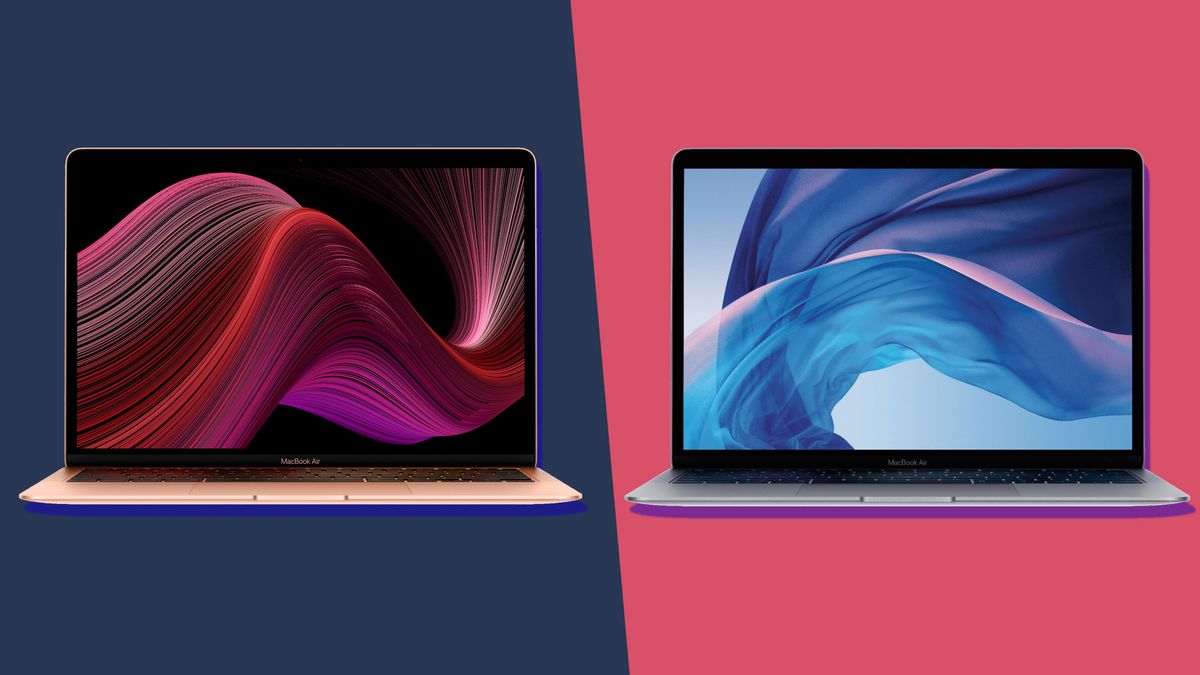
If you're looking to buy Apple's thin and light laptop, then our MacBook Air 2020 vs MacBook Air 2019 guide is for you.
The new Apple MacBook Air 2020 was launched in March 2020, and the company promises that it's a big step up from the MacBook Air 2019 – but does that mean the latest model is the right one for you?
To help you decide, we've put together this guide that pits the new MacBook Air against the older model, helping you decide which one to go for.
- Have a Mac that won't start? Here's how to fix it.
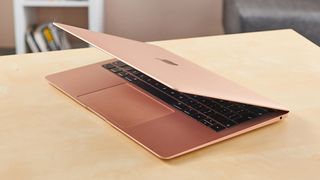
Price and specs
Apple pitches the MacBook Air as its most affordable laptop, and the good news is that this continues with the MacBook Air 2020. In fact, this year's MacBook Air is even more affordable, as it has a new lower entry price.
The MacBook Air 2019 launched with an entry-level model that cost $1,099 / £1,099 / AU$1,699. This model comes with a 1.6GHz dual-core 8th-generation Intel Core i5 processor with Turbo Boost up to 3.6GHz, 8GB of LPDDR3 RAM, 128GB storage and Intel UHD Graphics 617.
There’s also a model with the same specs, but with twice the storage at 256GB, which will set you back $1,299 (£1,299, AU$1,999).
Meanwhile, the MacBook Air 2020 starts at $999 / £999 / AU$1,599. Not only is this cheaper, but the specs are better, with the entry-level model featuring a dual-core 10th-generation 1.1GHz Intel Core i3 processor with a boost of 3.2GHz, 256GB storage and 8GB of LPDDR4X RAM.
Get daily insight, inspiration and deals in your inbox
Sign up for breaking news, reviews, opinion, top tech deals, and more.
There's also a higher-end MacBook Air 2020, priced at $1,299 / £1,299 / AU$1,999, which comes with a 10th-generation quad-core Intel Core i5 processor – the first time a quad-core CPU has been included in a MacBook Air – 512GB SSD storage and 8GB of RAM.
You can upgrade the processor, RAM and storage on both models at additional cost.
While the 2019 model comes with an i5 in its base configuration, the improvements Intel has brought to its 10th generation processors, compared to its 8th, closes the gap, especially when it comes to integrated graphics. Meanwhile, the faster RAM also helps improve performance.
- Check out the latest MacBook Air deals and sales
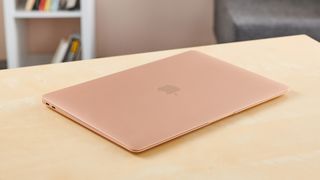
Design
On the outside, it doesn't look like much has changed in the design of the MacBook Air. The MacBook Air (2019) is a remarkably thin and light laptop with dimensions of 11.97 x 8.36 x 0.61 inches (30.41 x 21.24 x 1.56cm) and a weight of 2.75 pounds (1.25kg).
The MacBook Air 2020 is just a tiny bit thicker, but otherwise almost identical in size with dimensions of 11.97 x 8.36 x 0.63 inches (30.41 x 21.24 x 1.61cm). It's also slightly heavier at 2.8 pounds (1.29kg).
So, while the new MacBook Air is slightly bigger, it won't feel like it's lost that iconic thin and light feel that the Air lineup is known for.
However, there is a more noticeable change with the MacBook Air 2020 – it has a new keyboard.
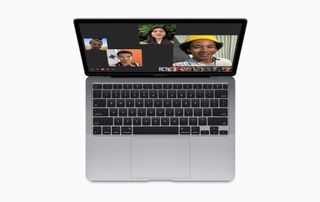
The new Magic keyboard of the Apple MacBook Air 2020 first debuted on last year's MacBook Pro 16-inch.
With a redesigned scissor mechanism, this keyboard should avoid the issues that plagued previous MacBooks with the older butterfly keyboard.
This new keyboard offers 1mm key travel for a responsive feel when typing, and the arrow keys are now in an inverted 'T' shape, as on PC keyboards, which makes them more intuitive to use.
There's also a separate delete key (something many people asked for) and a Touch ID fingerprint scanner for biometric login to macOS.
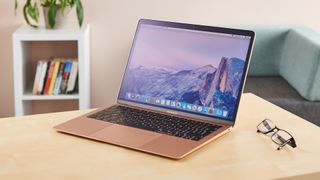
Display
One of the most noteworthy changes the MacBook Air (2019) brought was a display that boasts True Tone technology, bringing it in line with the MacBook Pro 13-inch (2019).
True Tone automatically adjusts the color temperature shown on the screen based on the ambient light. It can do a good job of making colors look more natural – especially in some conditions.
If you want color accuracy, however – if you’re a photographer or video editor, for example – then you’ll probably want to turn this feature off, which you have the option to do.
The MacBook Air (2020) also comes with the True Tone technology, and like its predecessor, it features a 13.3-inch display with LED backlighting, IPS technology and a native resolution of 2,560 x 1,600. That results in a pixel density of 227 pixels per inch on both screens, leading to an incredibly sharp picture.
However, the MacBook Air (2020) has the graphical edge thanks to its more powerful Intel Iris Plus graphics. It's also able to support an external 6K display, something the previous model can't match.
MacBook Air 2020 vs MacBook Air 2019: which one should you buy?
So, which MacBook Air should you buy? Usually this would be a complicated question, but this time it's pretty clear cut: if you're after a MacBook Air, then get the 2020 edition.
Not only does it have more recent and powerful hardware, leading to better performance, it's also launching at a lower price than the MacBook Air 2019. While we imagine the price of the 2019 MacBook Air will drop now that the 2020 model is available to buy, unless it drops by a huge amount, it'll still be worth going for the newer model due to the power difference.
Thanks to the better internal hardware, the MacBook Air 2020 is more future-proof, which means you won't feel the need to upgrade for a while.
So, when it comes to the question of MacBook Air 2020 vs MacBook Air 2019: which one should you buy, the answer is clear: get the MacBook Air 2020.
- MacBook Pro 2019 vs MacBook Pro 2018 – is it worth an upgrade?
- Check out the latest MacBook sale prices and deals

Matt is TechRadar's Managing Editor for Core Tech, looking after computing and mobile technology. Having written for a number of publications such as PC Plus, PC Format, T3 and Linux Format, there's no aspect of technology that Matt isn't passionate about, especially computing and PC gaming. He’s personally reviewed and used most of the laptops in our best laptops guide - and since joining TechRadar in 2014, he's reviewed over 250 laptops and computing accessories personally.
Most Popular

